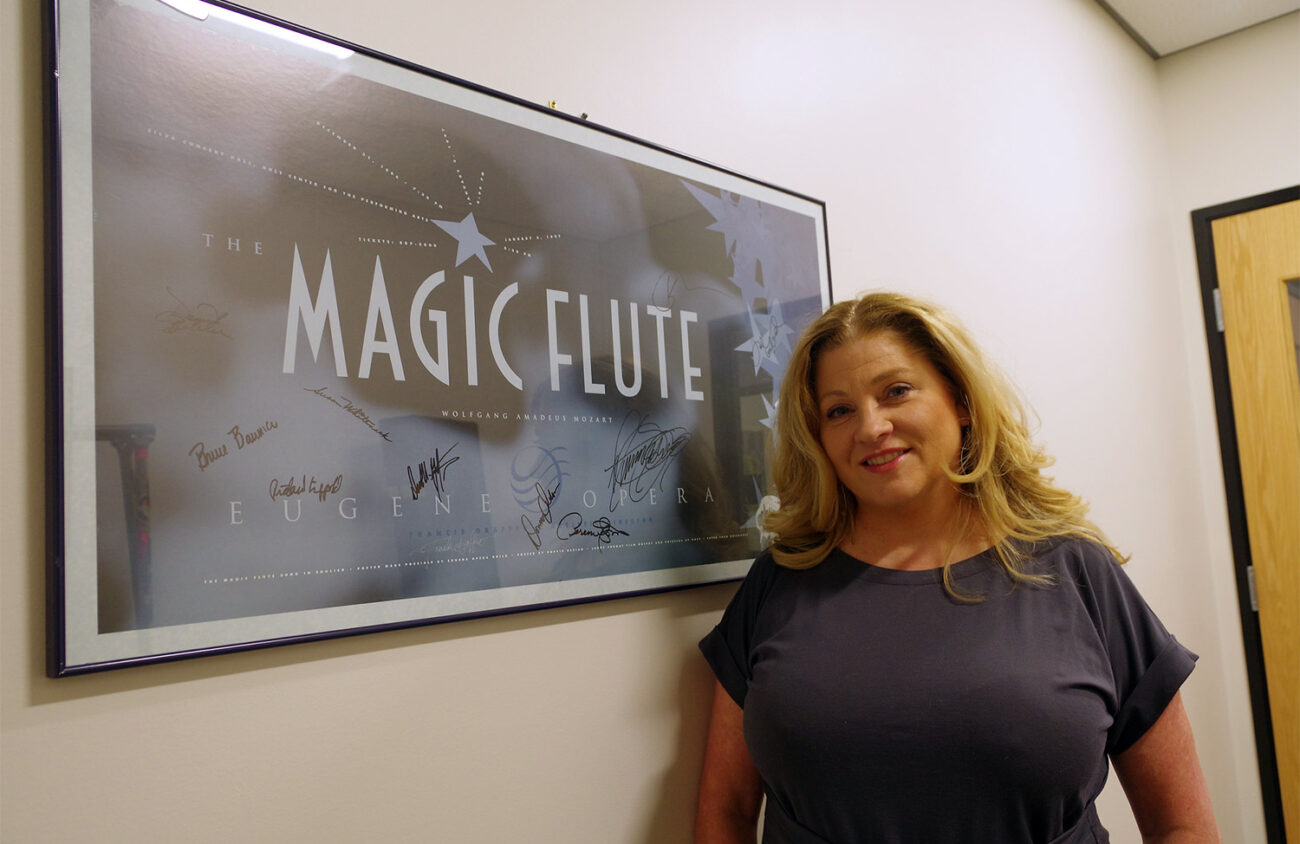Kari Boldon Welch is the first to admit she’s a newcomer to the colorful world of opera. “I don’t know a ton about opera,” she says. “But I do know about theater. I do know about production. And I do know about management.”
A well-known Eugene actress, stage director and arts administrator who most recently worked as development and communications coordinator at Lane Arts Council, Welch took over as executive director of Eugene Opera on July 1. In her new job she’ll be managing a nonprofit arts organization that has seen more than its share of financial drama since its founding in 1977.
It’s a whole new world for her. “I haven’t seen a lot of opera,” she says.
One of the Hult Center’s founding resident companies when the facility opened in 1982, Eugene Opera became known nationally for such feats as successfully drafting humorist Dave Barry to portray a corpse on the Hult stage in Puccini’s comic one-act opera Gianni Schicchi in 1995 after Barry wrote in his Miami Herald column that opera “can kill you.”
More seriously, the opera put on a sophisticated 2012 production of John Adams’ challenging Nixon in China that had local curmudgeons walking out at intermission — yes, Adams’ minimalist score is difficult to love at first brush — but drew high praise from Opera News magazine (“Eugene Opera rose to the challenge of Nixon in China”) and Register-Guard critic Marilyn Farwell, who wrote the production “exhibited an artistic maturity beyond many of our wildest dreams.”
Despite the critical acclaim, Nixon helped cost artistic director Mark Beudert his job after the board of directors tallied up the bills for the production — which brought in nationally known singers as well as professional dancers from Eugene Ballet — and weighed them against disappointing ticket sales. With its combination of skilled singers, orchestra players, sets and costumes, opera is widely regarded as the most expensive of the performing arts.
Less than a decade later the opera was particularly hard hit by the pandemic, from which it has been slow to recover. On March 12, 2020, the company had just completed its final dress rehearsal for Tosca, which was to have opened March 13 at the Hult Center’s 2,400-seat Silva Concert Hall, when it got word that the governor had shut down public gatherings of more than 250 people. The show was canceled.
Across town that same night at Very Little Theatre, Welch had just finished the final dress rehearsal for Little Women, the Musical, which was similarly canceled, though VLT and Welch staged the show with a largely different cast in 2022.
Except for online events, the opera remained silent until fall 2021, when it launched a stripped-down season with only two productions.
One of Welch’s primary goals, she says in an interview with Eugene Weekly, is to return to a full season with four shows, including the opera’s long-popular New Year’s Eve productions. “That’s going to be the challenge for Eugene Opera and me in the next five years,” she says.
Despite its limited season, the opera is stable financially, Welch says. “Ticket sales were not terrible over the past year,” she says. “But finances could be better.”
Perhaps the greatest challenge, she says, is to convince the greater public that opera is not an arcane, difficult art form accessible to only a small educated elite.
“You actually know opera better than you think you do,” she says, citing the common occurrence of recognizable opera musical themes in everything from television cartoons such as Bugs Bunny to commercials and movie themes. “Opera has deeper roots in our culture than many of us realize.”
